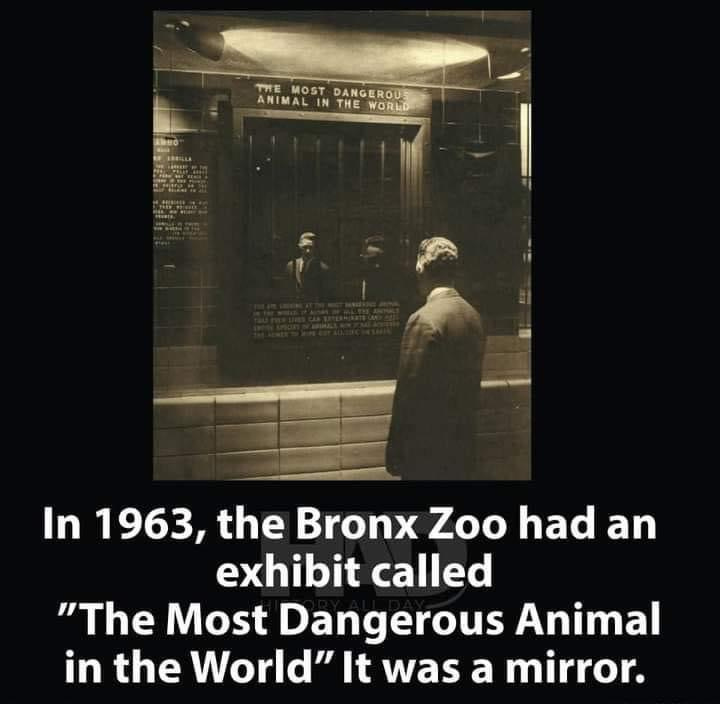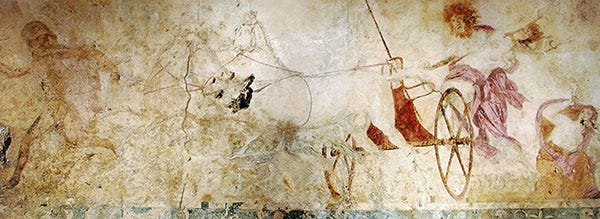The most dangerous animal in the world...
...and why stories matter
It has been estimated that the world hosts ~ 8.7 million species (National Geographic Society). Only one of those species is us. Even with that singularity, Daniel Schmachtenberger brilliantly reminds us — we have the unique capability of causing the extinction of other species. We exponentially deplete resources faster than they are generated while simultaneously creating waste and pollution that outpaces any restorative efforts we may or may not be capable of implementing.
More animals are suffering at our hands in factory farms than roam the earth. If by some stroke of magic we managed CO2 emissions that would not address dead zones in the ocean, nitrogen runoff of phosphorus in agriculture, industrial effluent and overfishing. I haven’t even highlighted the impacts of deforestation or mining both in land and sea.
What does this have to do with storytelling? Let me share a personal example.
Every January — or at least for the last several years — I commit to running 267 miles. Participants sequentially (virtually) traverse the routes of all three Badwater® races – the 51-mile Badwater Cape Fear, the 81-mile Badwater Salton Sea, and the 135-mile Badwater.
The kicker is, miss a day and it can unravel very fast. I am a little behind compared to my normal progress but once I log a few big days all will be good. I run every day and because I am unwilling to negotiate how I feel — it gets done. How I feel has nothing to do about it. I just do it.
A recent trip to NYC found me doing laps around Central Park to clock 9 or 10 miles before I had other places I needed to be.
Here is what I noticed in NYC. You can almost read a person’s story through a brief encounter, overheard snippet of conversation or how they are dressed. The runners I met were a lively bunch. We were out there often before the sun and I rarely needed to listen to anything in my ear pods. Tuned into the conversations around me was all the entertainment or distraction I needed. Discussions of what exhibits or brunch locations could not be missed, political discussions, concerns over the path around the reservoir—it was a reminder of the appeal of narratology and conversation.
Story as myth—I overheard a discussion of Persephone and her abduction by Hades being applied to how a particular runner described being “recruited” onto the trail that morning.
It was the myth that triggered an idea. What do we believe?
Do we believe that mining a rare coral reef is worth the catastrophic risk to biodiversity and our ecology? What rivalrous dynamics do we ignore for our own creation myths?
CORDES: Well, this study started when this area was under consideration for oil and gas leasing, and the Bureau of Ocean Energy Management funded a good portion of this study, along with the U.S. Geological Survey and NOAA, which is the National Oceanographic and Atmospheric Administration. And so we were looking at this area to find these potentially sensitive habitats to make sure that if our industrial use were to move into this area, that we would try and avoid as many potential impacts as possible.
DETROW: And then that gets to the broader paradox here because when you talk about deep sea mining, a lot of the interest in that has to do with electric cars, other green technology aimed at lowering the broader carbon footprint, but obviously has its own environmental concerns. You mentioned that was the impetus for beginning this research. Where does that possibility stand right now?—NPR, All Things Considered
We are a dangerous species. Capable of our own self-termination. If we listen, we can hear the right path, if we pay attention we can share the stories…
Roy Nachum — Mercer Labs, NYC (Museum of Art and Technology)






